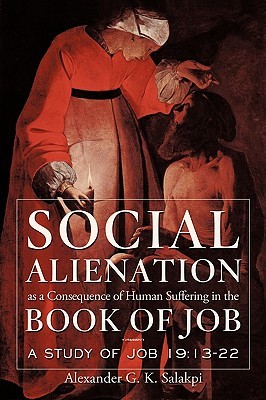
- Išsiųsime per 10–14 d.d.
- Autorius: Alexander G K Salakpi
- Leidėjas iUniverse
- ISBN-10 : 1450242618
- ISBN-13 : 9781450242615
- Formatas: 15.2 x 22.9 x 1.2 cm, minkšti viršeliai
- Kalba: Anglų
- Extra -15 % nuolaida šiai knygai su kodu: ENG15
Social Alienation as a Consequence of Human Suffering in the Book of Job + nemokamas atvežimas! | knygos.lt
Atsiliepimai
Aprašymas
THE BOOK OF JOB has attracted the attention of exegetes and theologians for centuries. Job, the hero of this book, suffers undeservedly, and the consequences of his affl iction are manifold. Among his sufferings are a progressive alienation from his social network, his friends, and even his closest family leading to his total social breakdown despite his struggle for reintegration into society. Th is social disorientation reaches its first climax in chap. 19, particularly in 19:13- 22, where Job claims that everyone has abandoned him. Nowhere else in the Book of Job does Job express this social alienation as strongly as in 19:13-22. Job strongly believed that he had done nothing wrong to deserve his fate; yet, Israel's theodicy held that God rewards the righteous and punishes the wicked. His family, friends, and loved ones reinforce that notion by making judgments on behalf of God. His personal suffering is thus made even more unbearable by those who loved him. Physical and mental suffering is not always, as it now emerges in the Book of Job, a punishment from God, and the social rejection the sufferer goes through in the society is ethically wrong and unjustified. The book examines how social isolation aggravates the suffering of Job, how the concept of "deed and consequence" relates to the suffering of Job, and what theological solution the author of the Book of Job suggests.EXTRA 15 % nuolaida
Kupono kodas: ENG15
Akcija baigiasi už 10:01:16
Nuolaidos kodas galioja perkant nuo 10 €. Nuolaidos nesumuojamos.

- Autorius: Alexander G K Salakpi
- Leidėjas iUniverse
- ISBN-10: 1450242618
- ISBN-13: 9781450242615
- Formatas 15.2 x 22.9 x 1.2 cm, minkšti viršeliai
- Kalba: Anglų



Atsiliepimai